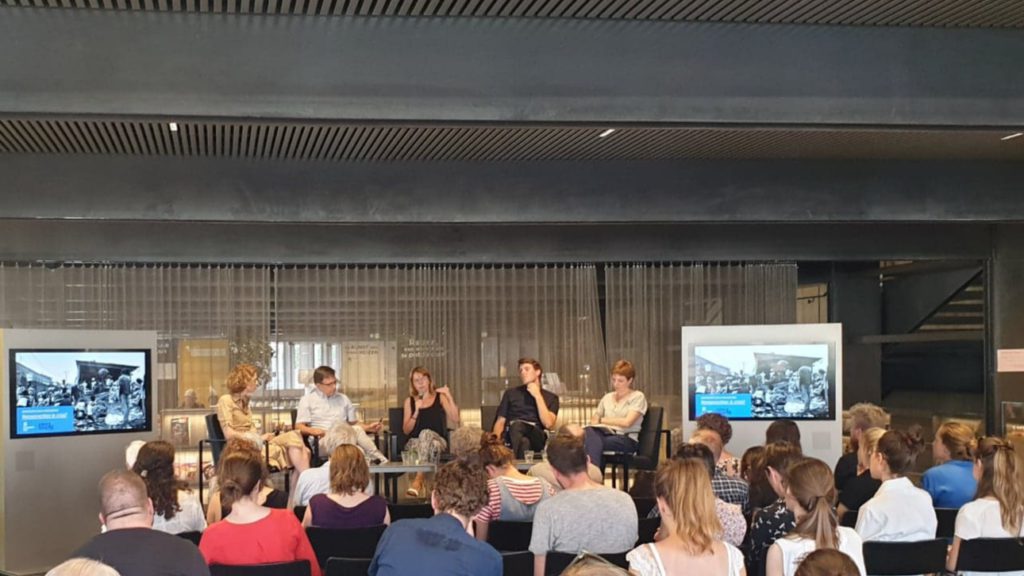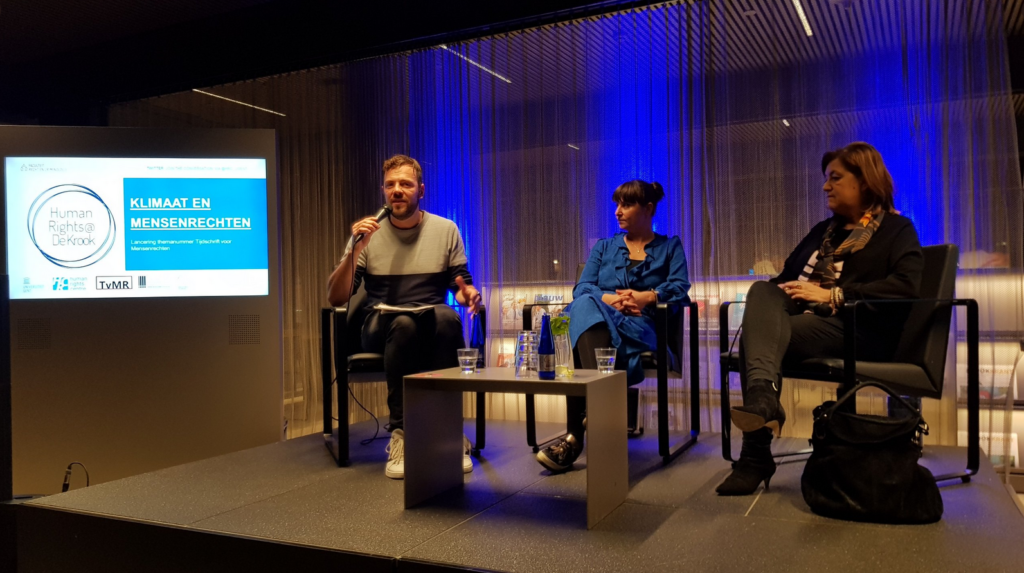In 2019, the Human Rights Centre launched a new series of public lectures on human rights, that sheds light on some of the most important ongoing societal debates, and that highlight their human rights dimension, in collaboration with the public library, De Krook. Cathérine Van de Graaf – organiser of all sessions of HumanRights@DeKrook– states: “This series offers a unique opportunity to reflect on the position of human rights in our present-day society. Instead of merely speaking to the attendees, we try to create an atmosphere in which meaningful interaction can occur, at the heart of the library.” “The work we are doing on these topics is just too important to only be discussed within academic settings. We really need to talk more often to people who have a stake in these debates. We need to know what’s they are thinking about, and we need to tell them inspiring stories about human rights”, comments Tine Destrooper, initiator of the series.

What’s the reason for this initiative, a new public lecture series on human rights issues?
We are living in an epoch where human rights are increasingly coming under attack from various sides. Because of this, we deemed it is crucial to reflect, together with a broader audience, on why this is the case, but also to highlight the ongoing importance of human rights norms and the many ways in which they continue to be relevant – and viable – today. The Human Rights Centre wants to show that human rights (both as law and as a mobilizing discourse on social justice ideals) are not on the verge of disappearing. On the contrary, all kinds of actors are taking these human rights norms and using them in new and creative ways in their various struggles. Our intention is to engage in a discussion and to think through the pros and cons of some of these innovative practices and evolutions in the domain of human rights, and to arrive at future-proof reading of what human rights can continue to mean in today’s society.
Why organize this lecture series in the café of the public library De Krook?
A crucial part of the mission of De Krook is to be a place where people can meet in an informal setting to gather knowledge and to exchange ideas about science, culture and topics that matter to them. At the Human Rights Centre we want to be part of that exchange and to inspire critical thinking and debate about the great challenges of our time. The topics that we work on are too important to only discuss in academic settings. They require sound research, which is our core business, but we also see it as part of our mission to engage in outreach to show people that human rights is not something remote, but a very concrete thing affecting many people’s lives. As a matter of fact, we also want to get feedback on our work, and input for future projects from stakeholders that we don’t usually talk to when we are only talking to fellow researchers. We believe that our research has to be a mirror of the concerns that are keeping people busy.
What are some of the topics that will be discussed during this series?
We already had an introductory kick-off session on the practice of human rights where we talked about the creative ways in which people all over the world are making human rights their own, to nourish their struggle for social justice. In the next few months we will talk about the rights of trans* persons together with various civil society organizations, about the role of arts in seeking justice where we will have scholars and artists enter into conversation, about the highly contentious issue of the rights of unaccompanied minors, and about the right of a child to an own opinion. And the most recent session was on human rights and climate change. The fact that this session was fully booked in a matter of days, shows the enormous importance of, and interest for, these topics in society. We are also encouraging people to propose topics for the next cycle of lectures, so that we can stay as relevant as possible.
A highly topical conversation indeed, the most recent one on climate and human rights For those who missed it, what was the key take away of this session?
Climate change is one of the most pressing contemporary challenges for human rights worldwide. For human rights organizations, the struggle for human rights therefore goes hand in hand with the fight against climate change. For environmental organizations, in addition to activism and advocacy, an appeal to human rights (law) as a framework provides another tool to put pressure on policy makers to make tangible progress in this area. Our guests, Kati Verstrepen (president of the Flemish Human Rights League) and Valerie Del Re (director of Greenpeace Belgium), agreed that climate change is an area per se in which alliances must be built between human rights and environmental organizations.
Since the focus is on the practice of human rights, did this session also provide pointers regarding how to bring these insights into practice?
While human rights organizations typically lack the necessary scientific expertise on climate change, environmental organizations typically do not possess the necessary legal technical expertise on human rights law. Building alliances allows bridging both areas of expertise, with a view to for instance developing human rights arguments in the context of climate change litigation. Collaboration is also required in order to counter the threat of the shrinking space for civil society, which particularly affects environmental activists.

Find out more about our upcoming public lectures on our events page.
Or listen to past editions here: